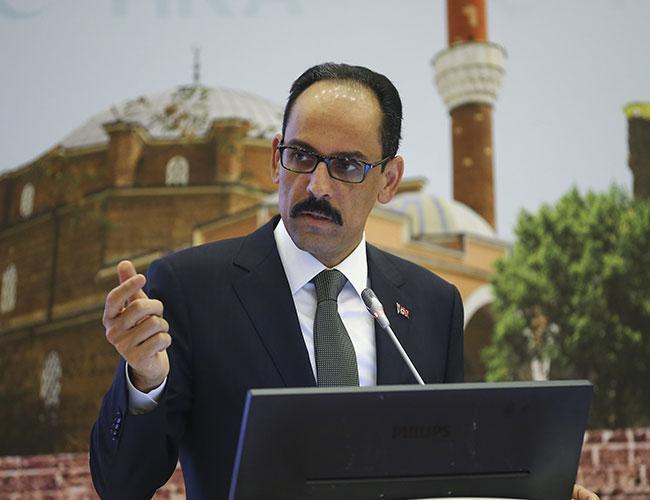
Austria’s recent decision to shut down seven mosques and expel a number of imams aims to “marginalize Muslim communities in Europe,” Turkish presidential spokesman İbrahim Kalın stated on June 8.
“The aim is to marginalize the Muslim communities and gain political benefits,” Kalın wrote on his Twitter account.
“The Austrian government’s ideological stance is against universal law standards, social rehabilitation policies, minority laws and the ethics of coexistence,” he added.
The Turkish Foreign Ministry also commented on the issue with a written statement on June 8, which said Austria’s recent decision is one of the consequences of anti-Islamic, racist and discriminatory populist wave in this country.
“We condemn Austrian politicians, especially Chancellor Kurz, for trying to achieve political interest from these alarming developments, rather than fighting against racism, Islam and xenophobia and the rise of the extreme right,” said the ministry.
The ministry said it is unfortunate that Austria will assume the term presidency of the EU. Austria’s decision is also against the efforts between Ankara and Vienna aiming to normalize ties between the two countries, said the ministry noting that it would not serve integration efforts for the Turkish community in Austria either.
The criticism comes on the same day as Austrian Chancellor Sebastian Kurz’s announcement of the new measures.
Austria will expel several foreign-funded imams and shut seven mosques in a crackdown on “political Islam,” Kurz announced on June 8.
The chancellor said the moves came after an investigation by Austria’s religious affairs authority into images that emerged earlier this year of children in Turkish-backed mosques playing dead and reenacting the Battle of Gallipoli from World War I.
“Parallel societies, political Islam and radicalization have no place in our country,” Kurz said.
The photos, published by the Austrian weekly Falter, showed young boys in camouflage uniforms marching, saluting, waving Turkish flags and playing dead. Their “corpses” were then lined up and draped in the flags.
The mosque in question was run by the Union of Turkish-Islamic Cultural Associations (ATİB) in Europe, based in the German city of Cologne, and a branch of Turkey’s Religious Affairs Directorate (Diyanet).
ATİB itself condemned the photos at the time, calling the event “highly regrettable” and saying it was “called off before it had even ended."
“Austria’s shutting down of the seven mosques and expelling of the imams over lame excuses is the result of the Islamophobic, racist, segregationist, populist wave in this country,” Kalın also wrote on June 2.
“How Islamophobia and racism are normalized should be firmly rejected,” he added.
Turkey-Austria ties damaged after referendum
Ties between Ankara and a number of European countries were hit in 2017 ahead of the controversial April 2017 referendum on shifting to an executive presidential system, with many Turkish politicians not permitted to hold pre-scheduled meetings.
Ahead of that referendum, Turkish ministers sought to drum up support in countries with large Turkish communities, like the Netherlands and Germany. Those countries imposed bans on security grounds that angered Istanbul, and Erdoğan and some of his allies at the time compared the German government to “Nazis.”
“[Erdoğan’s] Turkish leadership has been trying to exploit Europe’s communities of Turkish origin for many years,” Kurz told ORF radio in a broadcast of remarks on April 20.
“Turkish election campaign appearances in Austria are unwanted and we will therefore no longer allow them,” he added.
For the parliamentary and presidential elections coming up on June 24, Sarajevo became the only campaign stop for the longtime ruling Justice and Development Party (AKP) and President Recep Tayyip Erdoğan as governments in Austria, Germany and the Netherlands said they would not allow rallies for the Turkish elections this time around as well.
Turkey strongly criticized the bans and said the moves were “racist” and “undemocratic.”
Several hundred thousand people in Austria are Turkish or of Turkish origin.
Kurz’s conservatives are in a coalition government with the anti-Islam Freedom Party, making Austria the only Western European country to have a far-right party in government.
Both parties believe the EU should break off Turkish accession talks.